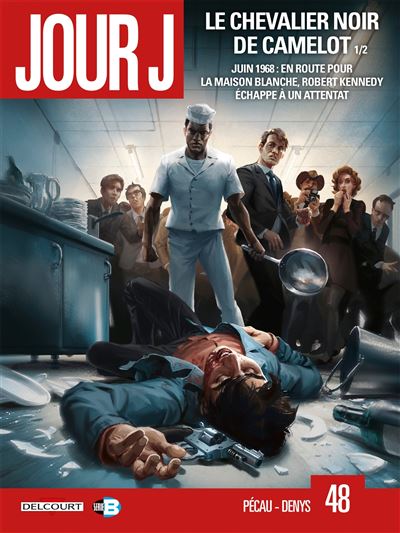Nowadays, it is not uncommon to meet people who fantasize about "giving up everything and going to live abroad". The France itself represents the ideal of many individuals around the world, who dream of croissants, Eiffel Tower, berets and Edith Piaf. So many clichés that forge a general image: a myth, under which hides a dark historical and political reality. The narrator of Bella Ciao Istanbul, is a Frenchman of Serbian origin, expatriate in Turkey. The latter loved this country, he even fell in love with it. Not only places, but also its people. But leaving with such expectations, Danilo Brankovic had not foreseen this descent into Hell.
Pierre Fréha presents an impulsive character
This book stretches over a little less than three hundred pages and follows the inner struggle, the constant hope of this man who dreams of freedom. Thanks to an effective introduction, the author Pierre Fréha sets a scene through the impulsive and indignant gaze of his character. The book begins with a quote from the French-Lebanese writer Amin Maalouf, and more specifically from the novel Les désorientés, published in 2012. These words go against the nationalist spirit attributed to the Turkish people, conditioned from an early age to respect the flag: "Each of us was going to let himself be led back, under guard, in the enclosure of his obligatory faith… I was born on a planet, not a country. »
Anxiety in the middle of Istanbul
This book resembles a storm, where the reader literally soaks up the stress of his character. The one who landed in Istanbul settled in the most conservative district of the city, on the advice of his friend Murat, a respected teacher. But soon, the protagonist suffers discrimination. Since he does not belong to the dominant religion of Islam and does not have Turkish nationality, then he is "the foreigner": he is considered as such. After expressing himself in anger, but saying precisely what he thought, the Frenchman was visited by police officers at his home. A disturbing event, which will increase his desire to fight. His undoubtedly utopian quest is to make the country admit its responsibility for the Armenian genocide, but also for the mistreatment of the Greek people. Against the backdrop of Covid-19, the text rings particularly true. With his almost childlike attitude and an assumed rudeness, Brankovic does not hesitate to invite the Turks to "go fuck themselves" in a language they obviously do not understand. But underneath this apparent instability lies an abysmal disappointment: "A whole passion for a country, to come to hate it and develop a sudden phobia. »
Bella Ciao Istanbul: a novel of truth
Pierre Fréha composes here a difficult text, which deals with current issues. With its detestable character that also describes delicate truths to accept, this book raises societal topics related to Turkey but also more generally to the importance of preserving heritage, so as not to repeat the mistakes of the past.
A character seen as an enemy
Several times, throughout this breathless novel, the phrase "I'm scared" comes up like a leitmotif. This is the recurring theme that defines Bella Ciao Istanbul. With an openly gay, atheist narrator, the writer composes a stereotype that embodies the "enemy" of a stagnant Turkey. In addition, the character complains of suffering discrimination, a situation that may seem strange to a white metropolitan Frenchman, well installed at home. This is not the case for Danilo Brankovic, who does not hesitate to defy the authorities, even in times of confinement. Completely against "liberticidal" measures related to health issues, this character surrounds himself with individuals with varied speeches and diverse origins. Because this is the heart of ancient Constantinople: a melting pot worthy of New York, the least representative city of the United States of America. But then, what is Turkey? What makes a country? Deep themes that are treated here with a certain brutality. To those who do not understand his thirst for freedom and resistance, his entourage reproaches him for his speeches filled with hatred: "And now, you criticize everything, our society, our culture, you no longer want my country, you want to return to Europe, you want Europe! Still, you've often gone back and forth. How come you didn't see where you were setting foot sooner? His friend Hirant told him. Other colorful characters such as Anne-Marie Prigent, originally from Brittany and journalist for the Gazette, who has strongly integrated into Turkish culture. To the point where she seems unable to be indignant, as she should do in the eyes of an exhausted narrator who is not fought at her side. Pierre Fréha signs here a complete novel and an authentic speech, sadly credible. The author's website: Click here






































